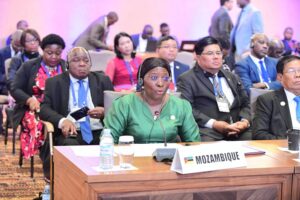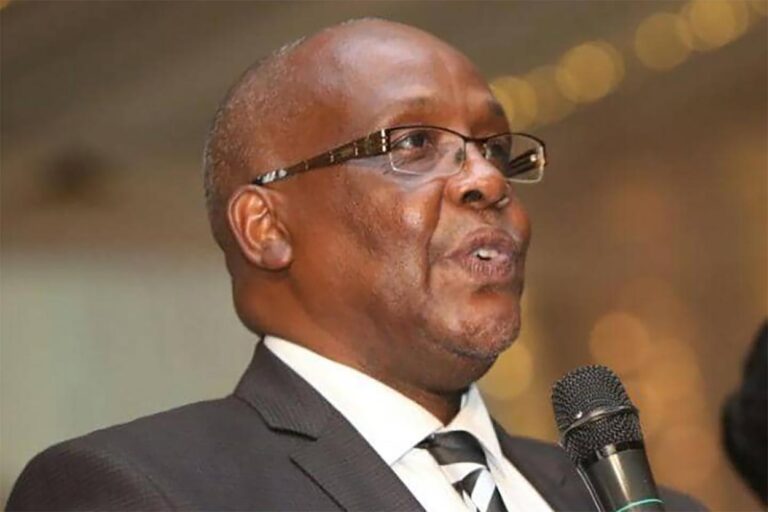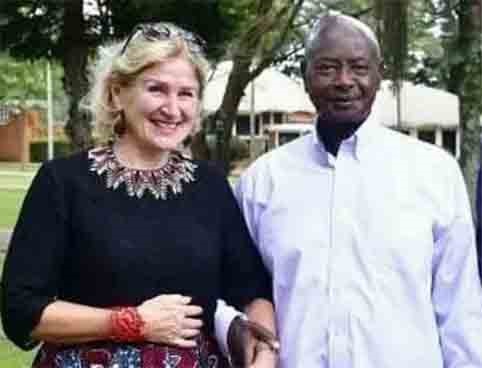
Museveni addressing the NAM delegates
HABARI DAILY I Kampala, Uganda I China’s economic prosperity has highly benefited Uganda, through attraction of foreign direct investment and other trade links, President Yoweri Museveni has said.
China’s economic prosperity is primarily the result of its “Reform and Opening Up” policies initiated in 1978 by Deng Xiaoping, which transitioned the country from a state-controlled economy to a mixed one.
This involved allowing private enterprise, attracting foreign investment, and opening the nation to international trade, which led to an average 10% growth rate over three decades and lifted hundreds of millions out of poverty.
Museveni, who on Wednesday, October 15, 2025, chaired the 19th Ministerial Meeting of the Coordinating Bureau of the Non-Aligned Movement (NAM) held at Speke Resort Munyonyo under the theme: “Deepening Cooperation for Shared Global Affluence, ailed China’s transformation as historical.
“For instance, China’s transformation has indirectly benefited Uganda and other developing nations. China has made technology and materials such as steel more affordable,” he said.
Key steps taken by China included granting peasants farming rights, creating special economic zones to attract foreign investment, and joining the World Trade Organization in 2001.

A participant from Mozambique addresses the NAM meeting
The NAM meeting, which runs from October 13 to 16, 2025, brings together Ministers of Foreign Affairs from NAM’s 121 member states, alongside representatives from the United Nations, African Union, and other multilateral institutions.
The conference serves as the Midterm Review Meeting following Uganda’s successful hosting of the 19th NAM Summit in January 2024.
Museveni, who is also the Chairman of the Non-Aligned Movement, hailed the foresight of NAM’s founding leaders, saying their decision to pursue neutrality during the Cold War established a vital principle for global peace and cooperation.
“I salute the Non-Aligned Movement. Our elders who started it did us a great service because they achieved neutrality,” he said.
Turning to Africa’s economic situation, President Museveni reiterated his long-standing argument that global prosperity depends on raising purchasing power in all regions.
“If Africa’s GDP per capita was $20,000, we would have a total GDP of about $30 trillion. At $25,000, it would reach $45 trillion. That would not only make Africa richer but would benefit our trading partners because we would buy more from them,” the President explained.
He urged NAM countries to promote industrialization, science, and human resource development to achieve equitable global affluence, expressing gratitude to NAM member states for entrusting Uganda with the chairmanship.
“We are very happy that you have come to Uganda in such big numbers. I thank you for honoring us with the chairmanship of the Non-Aligned Movement. When I look around and see all of us together, I believe we may be the hope of the world,” he said.
Said Museveni: “In the past, there was a conflict between the socialist camp and the capitalist camp, and our elders said, ‘No, we want to be neutral. We want to judge issues on merit.’ That helped us then, and it is even more important today.”
He warned that the ambitions of hegemonism, where some powers attempt to control the world, were outdated and counterproductive.
“Anybody who thinks they should control the world is wasting their time,” he said.
Museveni further emphasized the need for the global community to concentrate on “minimum mutually beneficial interests” such as trade, investment, and tourism, areas that unite rather than divide nations.
“My advice to people in the world is that we concentrate on minimum mutually beneficial interests: trade, investments, tourism, and mutual support in any other area. Where we don’t agree, let us act by good example and not coercion. If you think you are right, show it by doing things properly in your own country so that others learn from you,” he said.
Drawing inspiration from Christian teachings, quoting scripture: “Let your light so shine before men that they may see your good deeds and praise your Father who is in heaven”, President Museveni explained that positive examples, not force, should guide relations among nations.
He recalled the Thirty Years’ War in Europe, triggered by religious intolerance during the Middle Ages, and the fall of the Austro-Hungarian Empire after failed attempts to suppress emerging social systems.
“When one of the kings of England wanted to become Protestant, the Pope refused to allow anyone to change from Catholicism, and that caused a lot of chaos,” he said. “In the end, the Pope failed.”
“When capitalism emerged in France after the Revolution, Metternich of Austria-Hungary tried to stop it but failed. Where is Austria-Hungary today? It disappeared because it wanted to stop the evolution of history, which is impossible,” Museveni stated, adding that each nation should be free to determine its own social and political systems.
The President used examples from global industrial history to underscore how advancements in science and technology benefit all humanity rather than a select few.




